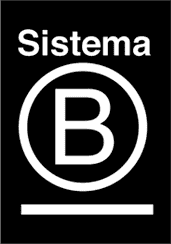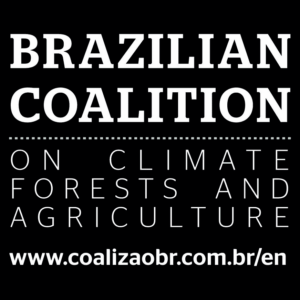Brazil is the 6th largest emitter of greenhouse gases. In 2017, 2071 Mt Co2e (gross emissions) were issued, of which 955 Mt Co2e related to land use (SEEG).
amazônia
possível

public
call
Public call for the collective construction of the 10 fundamental business principles for the sustainable development of the Amazon Region.
our
vision
We believe the protection of the Amazon, the largest rainforest in the world, should be enhanced to avoid risk of further degradation and want to support sustainable development, preservation and production in Brazil.
Brazil is proud of having over 65% of the territory covered by forest and native vegetation. However, the country also has one of the highest deforestation rates on the planet and must overcome this challenge to secure livelihoods and guarantee food, water, climate security and biodiversity preservation.
Today, more than 90% of the deforestation in the Amazon is illegal, which directly affects our sovereignty. Loss of forest cover in the Amazon threatens the global environmental balance, undermines the image of Brazil and negatively impacts the country’s economy.
We stand together at this moment to push for economic development that does not come at the expense of the forest. The best way to ensure the needed protection is to immediately stop illegal activities, develop a plan for sustainable development in the region, and ensure the traceability of livestock, agriculture, mining, and forest-sourced products. Therefore, legality, economy and traceability should be the pillars of Amazonian development.
This is the vision of the Amazônia Possível, an invitation to show that Brazil is serious, committed and against any illegal activity in the Amazon region, which includes illegal deforestation, illegal logging and illegal mining. And a call to discuss concrete science-based proposals for sustainable development of the Amazon on the road to COP-25 and beyond.
This path would harness the potential of Brazil’s ecosystem services and biological assets, ensure long term economic development, improve the security in the region and contribute to meeting Brazilian commitments under the Paris Agreement.
Through constructive dialogue with federal and state governments, conscientious businesses, civil society, academia and local communities, there is an opportunity for Brazil to address the underlying causes and complex challenges of deforestation and emerge as the leader in a low-carbon and high biodiversity economy.
We believe that sustainable development is fully dependent on preserving the standing forest. And we advocate an economy underpinned by our natural heritage as the basis for development that leaves no one behind.
The challenge is great, but the opportunity is greater.
about
us
We are a group of serious and committed Brazilian entrepreneurs, inviting civil, business and international society to discuss an Agenda for a Amazônia Possível.
The goal is to show that we care and pursue sustainable development. And that we refuse any illegal activity in the Amazon rainforest, specially illegal deforestation. This group is inviting everyone to a conversation to jointly create plans for the sustainable future of the forest to be announced at COP 25 in December 2019.
data & facts
The country (Brazil) has 44% of its emissions from land use and deforestation as the main GHG storage unit (92%) (SEEG).
From 1985 to 2017, the country lost 71 million hectares of native forests, corresponding to a 2.9x growth in its agricultural area and 47% of its pasture area (MapBiomas).
Of the 71 million hectares of net loss of native vegetation in the country, 40.8 million are in the Amazon (1985-2017) (MapBiomas)
Between 2005 and 2012, the Brazilian government managed to reduce deforestation by 70%. In 2012, the lowest rate was observed since 1988, but since then deforestation has been on a high trend (INPE).
Brazil is naturally a world reference in the environment – more than 65% of the national territory is covered by forests and native vegetation (MapBiomas). However, the country has a high rate of deforestation, which has been growing for the last 7 years (INPE).
Today, over 90% of deforestation in the country is illegal (MapBiomas and ICV).
brand partners






a amazônia possível is only with you
To believe in a Amazônia Possível is to believe in a more sustainable and promising development for all. Therefore, we invite you to this discussion about the future of the forest. Register your email or contact
us at contato@amazoniapossivel.com.br to learn more about our initiative.

